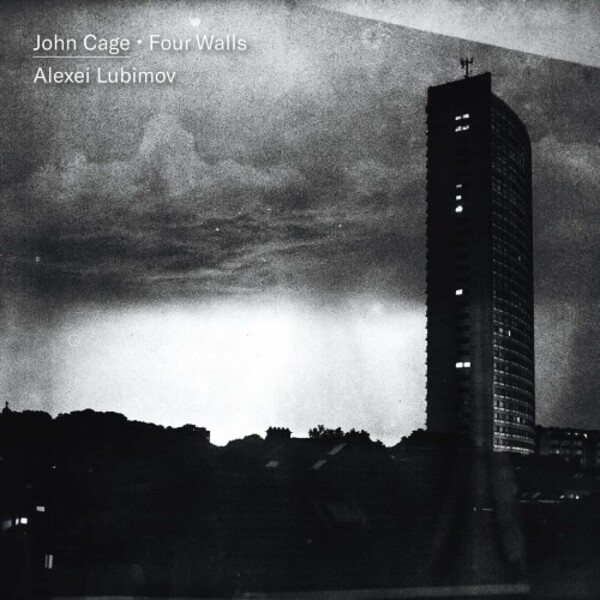CAGE Four Walls (Alexei Lubimov)
View record and artist detailsRecord and Artist Details
Genre:
Instrumental
Label: Fuga Libera
Magazine Review Date: AW22
Media Format: CD or Download
Media Runtime: 55
Mastering:
DDD
Catalogue Number: FUG793

Tracks:
| Composition | Artist Credit |
|---|---|
| Four Walls |
John Cage, Composer
Alexei Lubimov, Piano Marianne Pousseur, Soprano |
Author: Liam Cagney
Alexei Lubimov was banned from leaving the Soviet Union in his youth after premiering Western avant-garde music – of which event there was an unfortunate echo recently, when his concert of music by (Ukrainian composer) Silvestrov was broken up by the Russian police. Lubimov began performing John Cage in his twenties, then met the composer in 1988 in Moscow at the age of 44 (‘we drank vodka and ate dandelions’). Cage’s 1944 solo piano work Four Walls has been a mainstay; he has performed it both on its own and, more recently, as a full production with dancers.
Cage composed Four Walls for a dance play by Merce Cunningham about a marriage break-up (Cage’s own marriage broke up around this time). The piano plays only white keys and there is one brief sung interlude (a love poem by Cunningham). Satie’s solo piano music is an influence on the leisurely, non-goal-directed modal lines, and at times Ligeti’s Musica ricercata also comes to mind. Unusually for Cage, there are moments of heightened dramatic tension, reflecting the emotional material, and elements of the roughly contemporaneous Sonatas and Interludes for prepared piano make an appearance (Sonata 1’s first subject, without the buzzy timbres). It is not a particularly compelling work, but Four Walls does show how distinct Cage’s music was from that of his European counterparts.
Four Walls on record has a high calibre – Steffen Schleiermacher and Aki Takahashi’s respective readings stand out – but Lubimov’s account, now available on Fuga Libera, should be the definitive recording for a while. Lubimov shows exemplary range. He draws delicate poignancy from the wistful love theme (with its gently unfolding contrary motion lines, seeking and missing each other), and elsewhere he creates strident resonant timbres from repeated low staccato chords, burnished and warm. The work’s frequent silences expand outwards in this live recording, embracing us in the stillness of the auditorium (recorded with greater clarity and body than Schleiermacher’s live release).
Discover the world's largest classical music catalogue with Presto Music.

Gramophone Digital Club
- Digital Edition
- Digital Archive
- Reviews Database
- Full website access
From £8.75 / month
Subscribe
Gramophone Full Club
- Print Edition
- Digital Edition
- Digital Archive
- Reviews Database
- Full website access
From £11.00 / month
Subscribe
If you are a library, university or other organisation that would be interested in an institutional subscription to Gramophone please click here for further information.




